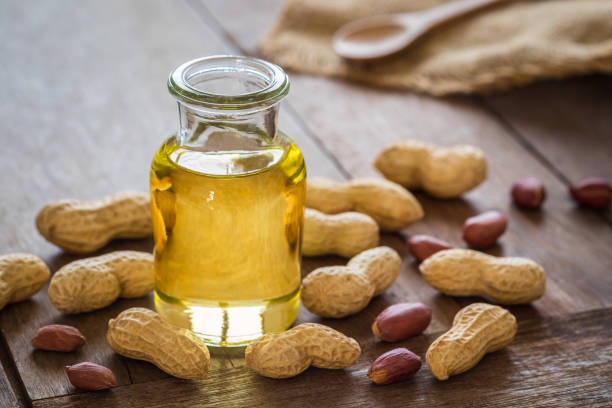When it comes to fast-food chains and their cooking practices, few questions stir as much curiosity as the ingredients used in their kitchens—especially when it involves allergens and health considerations. Among such inquiries, the question of whether Chick-fil-A, a leader in the fast-food industry known for its signature chicken sandwiches, Does Chick-Fil-A Use Peanut Oil. This question not only touches on dietary preferences and restrictions but also on broader concerns about health and wellness in fast-food consumption.
In this comprehensive exploration, we delve into the heart of Chick-fil-A’s cooking practices, specifically focusing on the use of peanut oil. Understanding the implications of cooking oil choices in fast food offers a window into the industry’s response to consumer health concerns, allergy awareness, and the quest for quality. By examining the reasons behind Chick-fil-A’s selection of cooking oils, we aim to provide readers with an insightful look into how this choice affects the taste, nutritional value, and safety of their beloved menu items.
Join us as we uncover the facts about Chick-fil-A’s use of peanut oil, drawing on expert opinions, nutritional science, and the company’s own statements. Whether you’re a fast-food aficionado, someone with dietary restrictions, or simply curious about what goes into making your favorite chicken sandwich, this article promises to enlighten, inform, and perhaps even surprise you. Read on to discover the truth behind Chick-fil-A’s cooking practices and how they align with today’s dietary needs and preferences.
A Longstanding Culinary Tradition
Ever since its early days as a small diner in Hapeville, Georgia in the 1940s, Chick-fil-A has used peanut oil to fry their chicken. Founder S. Truett Cathy discovered that peanut oil imparted a delicious nutty flavor to fried chicken that really made it stand out from the competition. He decided to use 100% refined peanut oil for frying their breaded chicken pieces, a tradition that continues to this day.
In fact, Chick-fil-A is so committed to using peanut oil that they are now one of the largest commercial buyers of peanut oil in the entire country. Each of the over 2,300 locations goes through a staggering amount of high-oleic peanut oil every day to keep up with customer demand. The chain uses strictly peanut oil supplied by peanut growers in Georgia, which helps support local agriculture as well.
So why is peanut oil so integral to the Chick-fil-A experience? There are a few key reasons:
Flavor Enhancement
The nutty, aromatic quality of peanut oil adds a signature taste to Chick-fil-A’s breaded chicken items. Customers love that they can instantly recognize that Chick-fil-A flavor with every bite.
Health Benefits
Unlike frying oils used by many other fast food establishments, peanut oil contains zero trans fat and cholesterol. The high-oleic peanut oil favored by Chick-fil-A provides heart-healthy monounsaturated and polyunsaturated fats. This careful choice of frying medium means that customers don’t have to feel quite as guilty indulging in fried menu options.
Cost Effectiveness
In comparison to alternatives like canola or vegetable oil, purchasing peanut oil in such massive quantities provides savings for the chain. This cost efficiency gets passed along to customers in the form of affordable menu prices.
So in summary, peanut oil lies at the very heart of Chick-fil-A’s culinary offerings. It differentiates their product, promotes better health, and keeps costs reasonable. Pretty impressive for a humble legume.
Accommodating Peanut Allergies
However, not everyone can partake in Chick-fil-A’s peanut oil tradition. Individuals with peanut allergies must exercise caution when eating at any restaurant that cooks with peanut-derived products. While Chick-fil-A takes precautions to accommodate guests with food allergies, cross-contamination is always a possibility in their busy kitchens.
Here are some important considerations around peanut allergy safety at Chick-fil-A:
Highly Refined Peanut Oil
The refinement process removes all traces of peanut protein from the oil, which is why the FDA does not recognize refined peanut oil as a major food allergen. However, individuals with severe peanut allergies may still react to it, so caution is warranted.
Shared Cooking Areas
Even though the peanut oil itself contains no allergens, Chick-fil-A stores, prepares, and cooks food with peanuts and tree nuts on premises. They cannot guarantee an allergen-free kitchen environment.
Menu Transparency
Chick-fil-A openly provides allergen and nutrition information for all menu items. Their website contains an allergen filter tool for finding peanut-free options. But always double check for yourself.
Personal Responsibility
Those with food allergies must carefully review ingredients and ask questions when dining out. Do not rely solely on verbal assurances of safety. Ultimately, you must decide what risks you’re willing to take.
While Chick-fil-A aims to accommodate guests with peanut and other food allergies, they cannot guarantee an allergen-free experience. Use good judgment when deciding to dine at any restaurant that cooks with your allergen.
More to Keep in Mind
Aside from peanuts, those with food allergies should know that Chick-fil-A kitchens also handle ingredients like wheat, eggs, milk, and soy. While they have procedures in place for allergen cross-contact, trace amounts may still be present. Ask questions about preparation procedures and sanitation practices at your local restaurant.
For complete details on menu offerings, including nutrition data, ingredients lists, and allergen warnings, visit the Chick-fil-A website. Thoroughly review the information for each menu item you are considering before placing an order. As always, communicate any special dietary needs with your restaurant team so they can take appropriate precautions.
At the end of the day, you know your allergies best. Weigh the risks and decide for yourself if Chick-fil-A is a good option based on your individual sensitivities. Never be afraid to ask questions or make special requests to the restaurant staff. The more information you have, the better you can protect your health and safety while dining out.
Alternatives for Those with Allergies

For guests who must avoid even refined peanut oil, Chick-fil-A does offer some alternative preparation options:
Grilled Chicken
Order grilled chicken sandwich filets or nuggets cooked away from peanut oil in a designated grill area. Ensure utensils and surfaces are thoroughly sanitized first.
Salads/Wraps
Build entrees using grilled or roasted chicken served over salad greens or stuffed in a wrap. Ask for certain dressings and toppings to be left off to avoid other allergens.
Bring Your Own Oil
Some locations may allow guests to supply their own frying oil to cook allergen-free items. Call ahead to check if this option is available.
While these selections eliminate the peanut oil, you’ll still need to watch out for cross-contact with other allergenic ingredients. As always, clearly communicate any food allergies or restrictions to staff when ordering.
Chick-fil-A Keeps Customers First
At the end of the day, Chick-fil-A values the health and satisfaction of all guests who walk through their doors, whether they can enjoy the signature peanut oil or not. They aim to provide delicious food in an accommodating atmosphere for all.
By being an informed and proactive customer, you can enjoy your Chick-fil-A favorites while staying safe if you have food allergies or sensitivities. Don’t be afraid to ask questions, customize your order, or bring your own food items. The team wants to help you have a positive meal experience.
Chick-fil-A will undoubtedly continue frying their chicken in peanut oil to uphold a cherished tradition of quality and flavor. But they strive to serve each individual customer with their specific needs in mind. So visit your local Chick-fil-A to enjoy their Southern hospitality — just be sure to communicate any dietary restrictions before ordering. With smart precautions, you can balance safety with those crave-able Chick-fil-A eats.
Conclusion
In conclusion, the use of peanut oil is an integral part of Chick-fil-A’s culinary history and brand identity. Their commitment to frying chicken in 100% refined peanut oil dates back over 70 years to the chain’s origins. Not only does peanut oil lend signature flavor, but it provides health benefits compared to other frying oils.
However, those with peanut and other food allergies need to take precautions when dining at Chick-fil-A. While the refined oil contains no allergenic proteins, the risk of cross-contact from shared kitchen spaces remains. Chick-fil-A makes ingredient and allergen information readily available, but individuals must educate themselves and ask questions to ensure their dietary needs are met.
For people with severe peanut allergies, Chick-fil-A does offer some alternatives like grilled chicken, salads, and wraps that avoid the peanut oil. Some locations may even allow guests to bring their own special fry oil as well. No safety guarantee exists, though, in a facility that handles peanuts regularly.
At the end of the day, Chick-fil-A stands by their time-honored peanut oil tradition while also trying to accommodate guests with food restrictions. Those with allergies must weigh the risks themselves and communicate clearly with restaurant staff to have the safest, most enjoyable dining experience possible. By working together, Chick-fil-A and its loyal customers can find ways to uphold long-cherished food traditions while also moving forward as a community.

